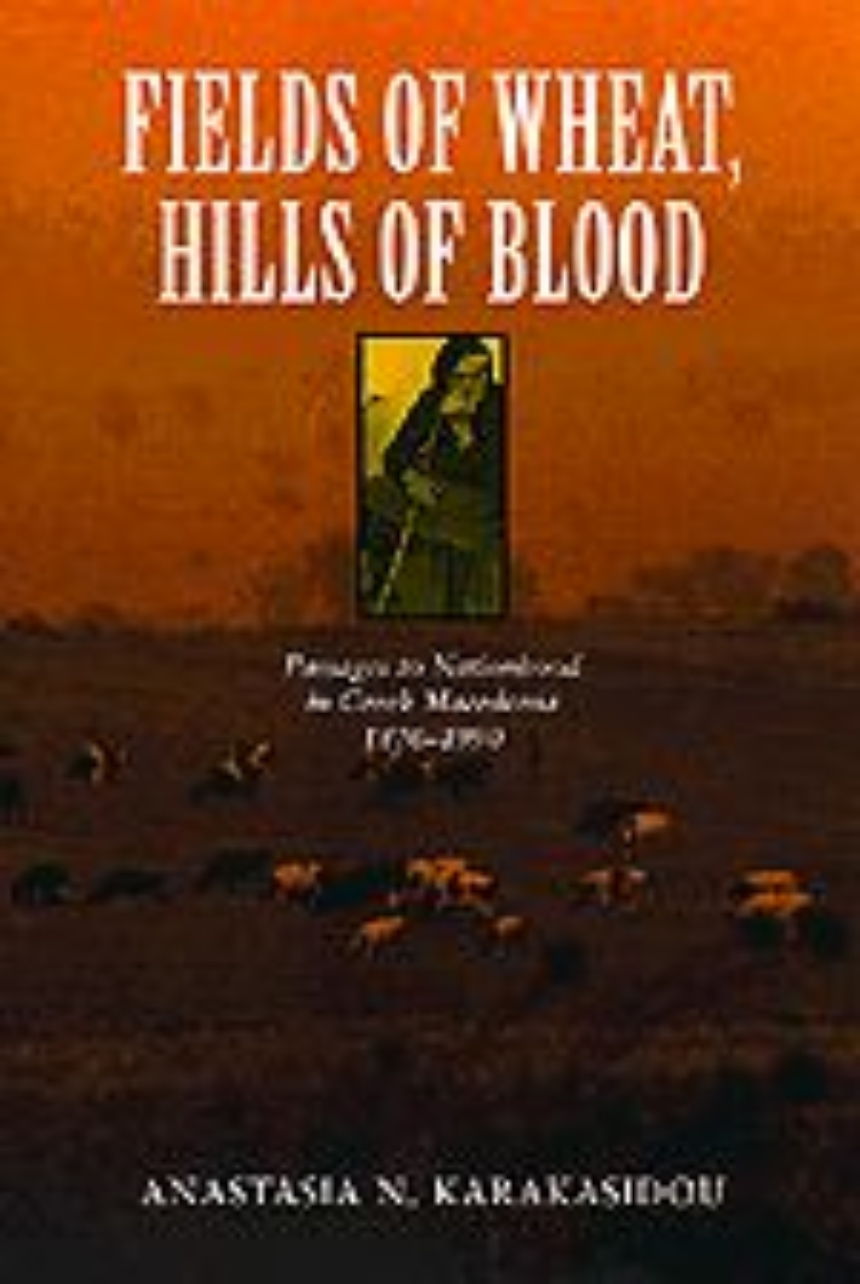Fields of Wheat, Hills of Blood
Passages to Nationhood in Greek Macedonia, 1870-1990
9780226424941
9780226424996
Fields of Wheat, Hills of Blood
Passages to Nationhood in Greek Macedonia, 1870-1990
Deftly combining archival sources with evocative life histories, Anastasia Karakasidou brings welcome clarity to the contentious debate over ethnic identities and nationalist ideologies in Greek Macedonia. Her vivid and detailed account demonstrates that contrary to official rhetoric, the current people of Greek Macedonia ultimately derive from profoundly diverse ethnic and cultural backgrounds. Throughout the last century, a succession of regional and world conflicts, economic migrations, and shifting state formations has engendered an intricate pattern of population movements and refugee resettlements across the region. Unraveling the complex social, political, and economic processes through which these disparate peoples have become culturally amalgamated within an overarchingly Greek national identity, this book provides an important corrective to the Macedonian picture and an insightful analysis of the often volatile conjunction of ethnicities and nationalisms in the twentieth century.
"Combining the thoughtful use of theory with a vivid historical ethnography, this is an important, courageous, and pioneering work which opens up the whole issue of nation-building in northern Greece."—Mark Mazower, University of Sussex
"Combining the thoughtful use of theory with a vivid historical ethnography, this is an important, courageous, and pioneering work which opens up the whole issue of nation-building in northern Greece."—Mark Mazower, University of Sussex
A controversy concerning this book’s publication, from the H-Net website.
358 pages | 12 halftones, 5 maps | 6 x 9 | © 1997
Anthropology: Cultural and Social Anthropology
Table of Contents
List of Maps
Preface
Introduction
Pt. I: Constructing Visions of the Historical Past: The Politics of Reading, Writing, and Telling of History
1: Between Oral Memory and Written History: Re-Membering the Past
2: Exchanging Identities: The Makings of the Guvezna Market Community
3: Converging Frontiers of Greek and Bulgarian Nationalism: Religious Propaganda, Educational Competition, and National Enlightenment in Macedonia, 1870-1903
4: The Macedonian Struggle in Guvezna: Violence, Terror, and the Scepter of National Liberation, 1903-1908
Pt. II: Class Reformation and National Homogenization: Processes of Consolidation and Change Following the Advent of Greek Rule
5: Crossing the Moving Frontier: Group Formation and Social Closure in the Era of Refugee Settlement, 1922-1940
6: Administering the "New Lands" of Greek Macedonia: Class Reformation and National Homogenization, 1913-1940
7: Sponsoring Passages to Nationhood: Material and Spiritual Patronage in Assiros
Conclusion: Reconstructing the Passages of Nationhood
Afterword
Appendix: Genealogies
Tables
Notes
Bibliography
Index
Preface
Introduction
Pt. I: Constructing Visions of the Historical Past: The Politics of Reading, Writing, and Telling of History
1: Between Oral Memory and Written History: Re-Membering the Past
2: Exchanging Identities: The Makings of the Guvezna Market Community
3: Converging Frontiers of Greek and Bulgarian Nationalism: Religious Propaganda, Educational Competition, and National Enlightenment in Macedonia, 1870-1903
4: The Macedonian Struggle in Guvezna: Violence, Terror, and the Scepter of National Liberation, 1903-1908
Pt. II: Class Reformation and National Homogenization: Processes of Consolidation and Change Following the Advent of Greek Rule
5: Crossing the Moving Frontier: Group Formation and Social Closure in the Era of Refugee Settlement, 1922-1940
6: Administering the "New Lands" of Greek Macedonia: Class Reformation and National Homogenization, 1913-1940
7: Sponsoring Passages to Nationhood: Material and Spiritual Patronage in Assiros
Conclusion: Reconstructing the Passages of Nationhood
Afterword
Appendix: Genealogies
Tables
Notes
Bibliography
Index
Awards
Association for Slavic, East European, & Eurasian Studies: Barbara Jelavich Book Prize
Won
Association of Women in Slavic Studies: Heldt Prize
Won
